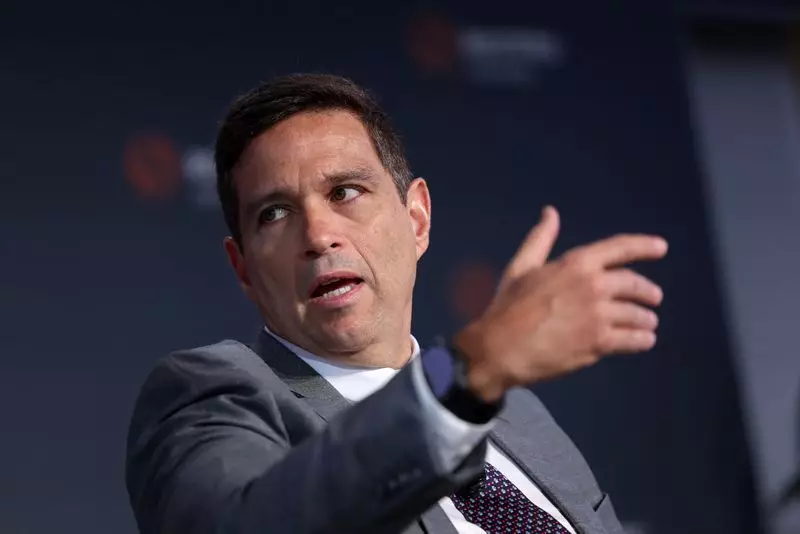The upcoming U.S. elections are casting a long shadow over global markets, and Brazil is no exception. Roberto Campos Neto, the head of Brazil’s central bank, has recently articulated the growing concerns surrounding potential inflationary outcomes stemming from the electoral prospects of the United States. As market participants watch the rivalry between Republican candidate Donald Trump and Democratic nominee Kamala Harris, there is increasing speculation regarding how their policies might impact inflation rates, particularly concerning long-term interest rate futures.
Both candidates have put forth agendas that signal significant fiscal expansions. These strategies are not merely run-of-the-mill campaign promises; they represent divergent views on economic management that could reshape financial landscapes domestically and internationally. Additionally, suggested shifts toward protectionism, alongside proposed immigration policy changes, add layers of complexity that might further fuel inflationist pressures globally.
Brazil’s Inflationary Reality
While the U.S. election looms large, Brazil is grappling with its inflationary dynamics. Campos Neto noted a recent uptick in consumer prices, which climbed to 4.47% over the past year, exceeding the country’s official target of 3%. This phenomenon calls into question the effectiveness of Brazil’s current fiscal policies and regulatory frameworks. Fortunately, the central bank received some positive news with the government’s announcement of a reduction in energy tariffs slated for November, which many economists believe could alleviate some inflationary pressures in the near term.
Even with these anticipated reductions, Campos Neto emphasized the necessity for Brazil to adopt robust and structural fiscal reforms. Without these changes, any temporary relief may be insufficient to mitigate the rising risk premiums that have become a feature of Brazil’s yield curve. The country’s public financial health, while concerning, remains comparable to several other economies, suggesting that Brazil’s fiscal challenges are not insurmountable but rather a reflection of broader global economic conditions.
Market Expectations and Future Outlook
Looking ahead, the Brazilian central bank’s monetary policy stance will be pivotal. With a policy meeting on the horizon for November 5-6, analysts predict a significant rate hike of 50 basis points. This follows a prior increase of 25 basis points in September, which adjusted the interest rate to 10.75%. Such measures indicate the central bank’s commitment to adhering to its inflation targets, notwithstanding the challenging backdrop of U.S. election-induced volatility.
As Campos Neto rightly pointed out, a large component of the risk premium embedded in Brazil’s financial instruments relates to its fiscal issues. Therefore, the necessity for a proactive and thoughtful approach to fiscal reform is paramount. With municipal elections approaching, the potential for positive announcements that could bolster investor confidence is on the horizon.
As Brazil navigates these turbulent waters, attention to the interplay between local and global factors remains essential. The outcome of the U.S. elections could either exacerbate or alleviate the inflationary challenges faced by Brazil, making it a crucial focal point for both policymakers and investors alike.

